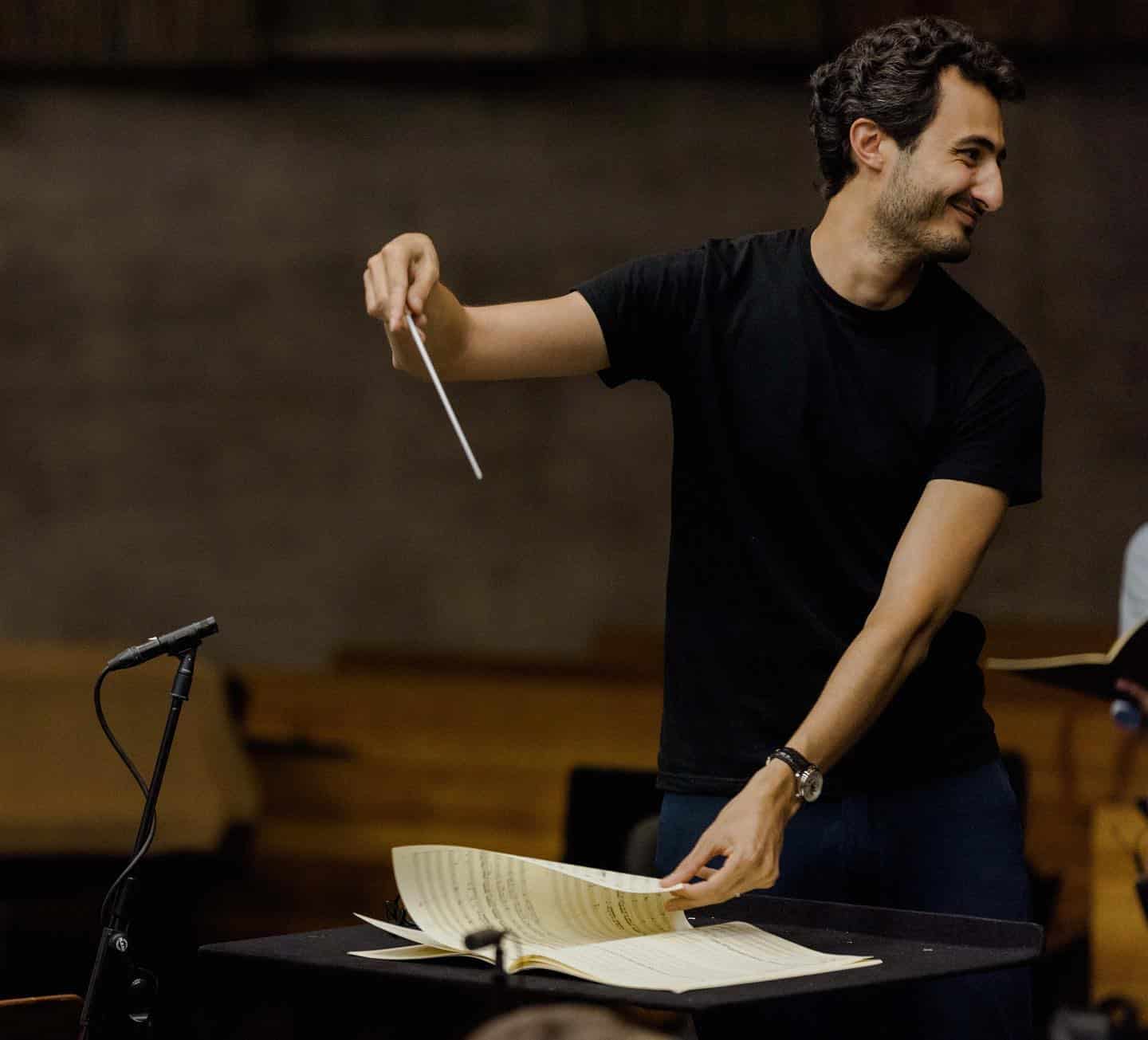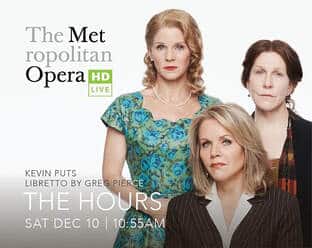Don’t underestimate our audience
mainSome international artists are chuckling among themselves at a list of instructions sent out by Concerts at Cratfield, an English chamber music series. Among them:
5. What turns our concertgoers off fastest is a programme which they perceive as lightweight (in length or depth), or performers who assume that listeners are not knowledgeable because it’s ‘just’ a Suffolk country church on a summer Sunday afternoon. [More on not ‘talking down’ to the audience under At your concert below.]
6 By the time you see this, the programme for your concert will have been made public via a printed season brochure, as well as on the website. We are reluctant to agree any changes to this, but recognise that sometimes there are good reasons for doing so: contact me as soon as possible if you wish to discuss a change.
7 If you wish, or are asked, to perform any of the works you have agreed to perform for us at any public event within 50km of Cratfield in the three months before your concert for us, please check this out with me first.
8 If any of the works you will perform include repeats asked for by the composer, we encourage you to observe these, unless you have a good reason for not doing so.
Any is left undotted or ts uncrossed?






Hilarious. 5 might be justified, and their programmes bear it out. But the rest are wonderfully pompous and arrogant.
Pompous and arrogant? Point 6 is absolutely basic stuff for concert planning, yet any experienced promoter will tell you how many musicians regularly ignore it. The audience has bought tickets to hear what was advertised, not what the musician chooses to play on the day. 7. Most major venues put a similar stipulation into their artist contracts; why shouldn’t minor venues? 8. Well, it’s one opinion, bit quirky, but since it’s usually the promoter rather than the artist who cops the flak from the audience for dodgy artistic decisions, why not?
All seems pretty fair and polite. Overall, I’d say these only seem unreasonable if you suffer from the curiously widespread modern misconception that concerts exist for the benefit of performers, not audiences.
They’re small fry, and yet their attitude is above their station. I assume most of the musicians will use the concert to run-in a programme to taken to a bigger venue. This festival must understand that and accept it as the price to pay for getting good artists to visit somewhere small. That’s the reality.
Point 7 (the metric and precise ’50km’ surely makes you laugh) is indeed a version of the requirement of major venues, but to appear here is odd, presumptuous and unnecessary. Would the audience seriously be put off attending if a quartet performed the Ravel 4tet, for example, 20 miles away a couple of months earlier? Or even in the next village the week before? Come off it.
As for the repeats point: that’s an artistic decision, and absolutely nothing to do with the promoter. I guess it’s perhaps about value for money, which is fair enough, but otherwise if a quartet wishes not to play an exposition repeat for a musical reason that’s their choice.
“They’re small fry, and yet their attitude is above their station.”
Holy crap, talk about pomposity …
‘Above their station’? ‘Small fry’? Now who’s arrogant? Their money is presumably as good as anyone else’s; I don’t imagine any artist is compelled to accept it. But having done so, any artist who then uses the performance as a ‘warm up’, or treats either the promoter who hired them, or more importantly, their audience, as of less significance than the Vienna Phil or Carnegie Hall, isn’t fit to be considered a professional – or, indeed, an artist.
9. please accept this embarrassingly low fee less a hefty tribute for the British Crown.
Well, well, well…I don’t comment much on SD, fearing that one’s credibility is inversely proportionate to the frequency of one’s posts. However, I’d like to ask the following questions. 1) Why knock a small chamber music festival that programmes most enterprisingly: Pēteris Vasks’ String quartet no 3 (1995), Britten’s String quartet no 3 op 94 (1975), Ravel’s String quartet in F (1902-1903), along with Mozart’s Piano quartet no 2 in E flat K493 (1786), Walter Piston’s Piano quartet (1964) and Brahms’ Piano quartet no 3 in C minor op 60 (1875). Damned if you do and damned if you don’t. We all know festivals that work according to principle of natibus super sedes and programme no works from the 20th or 21st centuries, or nothing the audience might not have heard before. 2) The contents of the letter or email to the artists are, I assume, meant to be confidential. In a strict sense they are contractual, and in a broad sense internal. So not much artistic ethos here, would one not agree? Disgruntled performer maybe? 3) So just how much money is there to be made for the promoter at a concert in a small country church with a highest ticket price of £19? Until arts funding in Britain is restored to a meaningful contribution and only when concert-goers are prepared to pay considerably more for a low category ticket than a G&T in the interval things won’t change. Musicians in the UK are treated like the jesters at a mediaeval court…come, play, and f-off. Harrummph, I’ve had my say and shall take my leave.
“Some international artists are chuckling among themselves … ”
Who? Names. Don’t play the lazy journo “some people say” game.
Well, I don’t share your apparent enmity for SD, but this post did strike me as odd given that no names were mentioned and that this list of recommended bullet points doesn’t really seem to me to merit any strong reactions one way or another. Oh, well.
One has to wonder why you actually bother to read and comment on this blog. Can’t you find anywhere else to go and be sour on?
Hear, hear! (I’ve just had an awful thought – Cabbagejuice may have changed her name by deed poll 😉
Oh for pete’s sake, don’t give Norman any credence. He’s talking drivel, as you know, I know, he knows, and he knows you and I know.
This list is entirely reasonable – in fact, given the resources available to festivals like this, it’s most probably been ‘borrowed’ from a larger venue. If my experience is anything to go by, it’s probably used more as a checklist than a strict series of rules in any case.
Talk about trying to make a fuss about nothing… honestly, is it any wonder non-London musicians get fed up about this sort of nastily superior ‘journalism’ from metropolitan hacks?
With reference to §7, I notice it says nothing about three months *after* the recital, so presumably they have no objection to an artist using Cratfield as a warm-up for the nearby Aldeburgh Festival (I suppose in that case they can always sell it as “be the first to hear this programme, at Cratfield!”). I would hope that the promoter would not unreasonably withhold consent for, say, one work in a programme to be played elsewhere, but I can sympathise with the gist of the requirement to obtain prior consent, provided that the artist’s fee were commensurate. That said, a quick look at the map suggests that, apart from Snape Maltings/Aldeburgh, there are no really major venues/festivals within the 50-km radius (the M11 corridor is comfortably out of range)… [cue indignant refutations from the denizens of Ipswich or some such place?]
Only musicians who would happily cut the tutti exposition in a concerto’s first movement would omit the first repeat in a sonata movement. But what of second repeats? Evidently Mozart thought carefully about them. 9 of his 10 great quartets have 2nd half repeats, at least two of them (Hoffmeister k499 and k421) even have 1st time bars (I’m not sure the Hunt’s 1st time bar quite measures up). That he was not merely responding to convention is shown by k575 which has no second repeat. The development of the c major piano trio k548 makes no sense until you hear it for the second time. Proper musicians take great composers at face value and do what is asked of them. After all, what could be better than listening to mozart?
If 7 is a reminder of a condition included in the original agreement then fine. If not, they have no right to seek to impose it retrospectively.